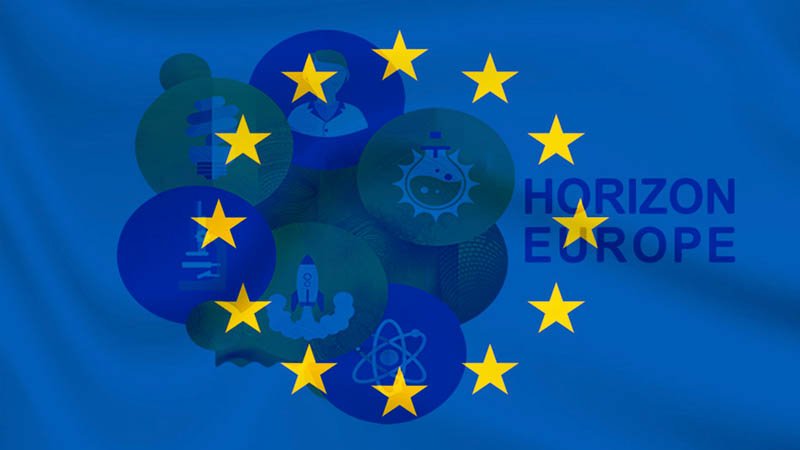The report, which was published on May 31, 2023, found that the EU was unable to fund all high-quality proposals received during this time period.

The European Union’s €95.5 billion funding program for research and innovation, Horizon Europe, was €34 billion short in the first two years of its operation, according to a new report by the European Commission.
The report, which was published on May 31, 2023, found that the EU was unable to fund all high-quality proposals received during this time period. As a result, 71 percent of high-quality proposals were not funded.
The report also found that the EU was slow to approve funding for proposals. The average time it took to approve a proposal was 18 months, and in some cases it took up to 36 months.
The report’s findings have raised concerns about the future of Horizon Europe. The EU has already committed to increasing the budget for Horizon Europe by €5 billion, but it is unclear if this will be enough to address the shortfall.
Commenting on the situation, Mariya Gabriel, Commissioner for Innovation, Research, Culture, Education and Youth said, “The findings of the report are a wake-up call. We need to do more to support research and innovation in Europe.”
“We need to increase funding, streamline the application process and provide more support to researchers. We also need to do more to promote research and innovation within the EU. If we don’t, we will fall behind our competitors,” she further added.
Carlos Moedas, former Commissioner for Research, Science and Innovation opinioned that the funding shortfall for Horizon Europe is a major setback for the EU’s research and innovation agenda. “The EU needs to find ways to address this shortfall if it wants to remain competitive in the global economy,” he emphasized.
Why there was a funding shortfall for Horizon Europe?
There are a number of reasons about this in the first two years of Horizon Europe program.
The COVID-19 pandemic
The COVID-19 pandemic had a significant impact on the EU’s economy, and this led to a reduction in the amount of money available for research and innovation.
Brexit
The UK’s decision to leave the EU also had an impact on the funding for Horizon Europe. The UK was a major contributor to Horizon 2020, and its departure meant that the EU had to find a way to make up for the lost funding.
Political disagreements
There were also a number of political disagreements between Member States about how to allocate funding for Horizon Europe. These disagreements led to delays in the approval of funding for proposals.
The complexity of the funding process
The program is too complex and bureaucratic, and that it is difficult for researchers to access funding. This can discourage some researchers from applying, even if their proposals are high-quality.
The lack of awareness of Horizon Europe
Not all researchers are aware of Horizon Europe or how to apply for funding. This can also lead to a shortfall in the number of proposals received.
The report on the first three years of funding program for research and innovation, Horizon Europe lays the groundwork for change by providing a comprehensive analysis of the program’s performance. The report identifies a number of areas where Horizon Europe could be improved.
The report also assesses the role that research can play in addressing future challenges, such as climate change and the COVID-19 pandemic. The report concludes that research is essential for addressing these challenges, and that Horizon Europe can play a key role in supporting research that can make a difference.
The report’s findings and recommendations provide a valuable roadmap for the future of Horizon Europe. The European Commission has said that it is committed to addressing the issues raised in the report, and that it will work with Member States to ensure that Horizon Europe is able to deliver on its objectives.
Sander Dekker, Minister for Education, Culture and Science of the Netherlands commenting on the report, said “The report is a valuable contribution to the debate on the future of research and innovation in Europe. It provides a clear analysis of the challenges and opportunities facing the EU in this area, and it sets out a number of concrete recommendations for how the EU can address these challenges.”
He urged that the European Commission and Member States to take the report’s recommendations seriously, and to work together to ensure that the EU remains a global leader in research and innovation.
The report is a positive step forward for Horizon Europe. It provides a clear vision for the future of the program, and it sets out a number of concrete steps that can be taken to improve its performance.
The report also makes a number of recommendations to improve the efficiency of Horizon Europe.
The European Commission has said that it is committed to addressing the issues raised in the report. The Commission has also said that it will work with Member States to ensure that Horizon Europe is able to deliver on its objectives.
The European Commission and Member States must now work together to implement the report’s recommendations, and to ensure that Horizon Europe is able to play a leading role in addressing the challenges of the 21st century.
The shortfall in funding program for Horizon Europe is a major setback for the EU’s research and innovation agenda. The EU needs to find ways to address this shortfall if it wants to remain competitive in the global economy.